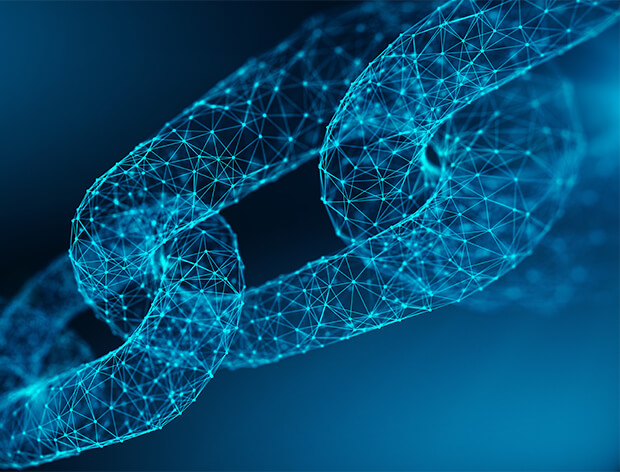Electronic bill of lading (eBL) providers ICE Digital Trade and IQAX have partnered with a technology consortium to create a solution that allows interoperability between their platforms, overcoming a key barrier to trade digitalisation efforts.
In a statement published today, Hong Kong-based blockchain consortium Global Shipping Business Network (GSBN) says a pilot transaction conducted this month successfully helped facilitate a shipment of petrochemical goods between Singapore and China.
The process saw an eBL issued by global shipping line OOCL transferred to an unnamed oil and gas company – a customer of ICE CargoDocs – via GSBN’s infrastructure.
Information was folded into a digital envelope containing all the relevant information, before being passed to ICE Digital Trade, it says. GSBN acted as the control tracking registry and enabled transfers to be monitored.
The supplier then transferred the eBL back to its customer Deqing Sunny Plastics – on the IQAX platform – for surrendering to OOCL.
“This transaction is a first of its kind because it went from one platform to another platform,” says GSBN’s chief executive Bertrand Chen.
He says its completion overcomes various impediments to interoperability, including technical, legal and liability issues as well as questions over insurance cover.
As part of the solution, ICE Digital Trade and IQAX agreed a robust inter-platform liability agreement which ensures that the right platform would be responsible for losses and able to pay.
“If the eBL remains within one solution then it is very clear who is liable,” Chen says. “However, if you have an eBL that floats from one platform to another platform, then it may be unclear who is at fault when an issue occurs.”
“Most importantly, this transaction is covered by the International Group of P&I Clubs,” Chen tells GTR, in reference to the thirteen protection and indemnity clubs that cover approximately 90% of the world’s ocean-going tonnage.
In January 2025, the International Group approved the interoperable eBL addendums submitted by ICE Digital Trade and IQAX’s eBL systems and deemed them eligible for cover.
Efforts to develop interoperable eBL solutions have been ongoing for several years, with the Digital Container Shipping Association (DCSA) having conducted a proof of concept with CargoX, edoxOnline, essDOCS and Wave BL in 2022.
This earlier trial tested the technological interoperability between platforms and relied on the DCSA’s eBL standards, using data that mirrored live shipments.
Large corporates have previously said they would not consider adopting eBLs unless barriers to interoperability were overcome, yet have faced various challenges, not least questions over legal liability.
By 2030, nine of the world’s major ocean carriers, representing nearly three-quarters of global containerised trade, have formally committed to achieving 100% usage of the eBL. However, the DCSA revealed last year that the number of bills of lading issued electronically for container shipments only stood at around 5%.
Chen predicts there will be significant demand for GSBN, ICE Digital Trade and IQAX’s interoperable approach among corporates, shipping lines and financial institutions – though no banks were involved in the pilot.
The inclusion of one of the world’s largest ocean carriers in the initial pilot is significant, Chen says, adding: “If OOCL accepts it, then others in the market likely would.”
“We are already looking to execute our second and third transactions,” he says. “We want to scale.”
In theory, the solution could be widened to include eBL platforms other than ICE Digital Trade and IQAX. However, scaling up will require other eBL providers to collaborate.
“We have the legal framework, insurance and everything else is settled,” Chen says. “But commercially, do companies want interoperability or not?”







